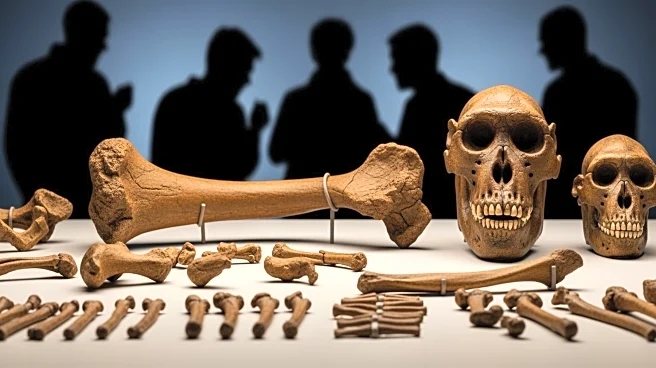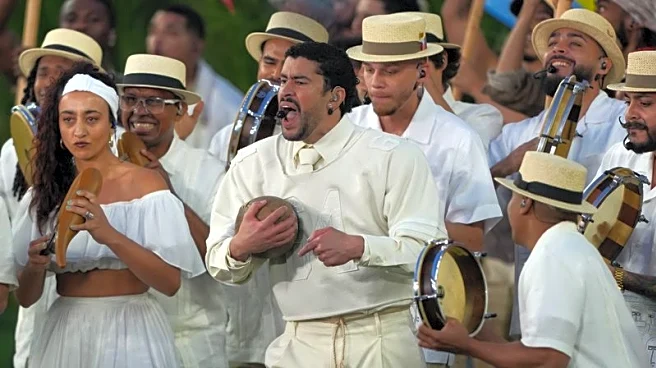What's Happening?
Anthropologist Christopher Bae from the University of Hawai'i at Mānoa has proposed the addition of two new species to the ancient human family tree: Homo bodoensis and Homo juluensis. This suggestion
challenges traditional naming conventions and has sparked controversy within the scientific community. Bae argues that the existing rules for naming species are outdated and hinder the removal of offensive names or the creation of easily pronounceable ones. His proposal follows recent debates over the classification of ancient human fossils, including those attributed to Homo longi and Denisovans. Bae's work is part of a broader effort to refine the understanding of human evolution, particularly in light of new molecular evidence and fossil discoveries.
Why It's Important?
The proposal to add new species to the human family tree has significant implications for the field of paleoanthropology. It challenges established norms and encourages a reevaluation of how species are classified and named. This could lead to more inclusive and culturally sensitive practices in scientific nomenclature. Additionally, the debate highlights the complexities of human evolution and the need for ongoing research to accurately reconstruct our ancestral lineage. The controversy also underscores the importance of interdisciplinary collaboration in resolving scientific disputes and advancing knowledge.
What's Next?
The International Commission on Zoological Nomenclature (ICZN) has yet to respond to Bae's proposal, but its decision will be crucial in determining the acceptance of the new species names. The scientific community is likely to continue debating the classification of ancient human fossils, with potential workshops and conferences to address these issues. Researchers may also explore alternative naming conventions that better reflect ethical considerations and linguistic accessibility. The outcome of these discussions could influence future research directions and the way paleoanthropologists approach the study of human evolution.
Beyond the Headlines
The debate over species naming conventions raises broader ethical questions about the legacy of colonialism and the representation of indigenous cultures in scientific research. It also highlights the importance of inclusivity and diversity in the scientific community, as well as the need for greater collaboration with researchers from the Global South. These discussions could lead to long-term changes in how scientific discoveries are communicated and understood by the public.











